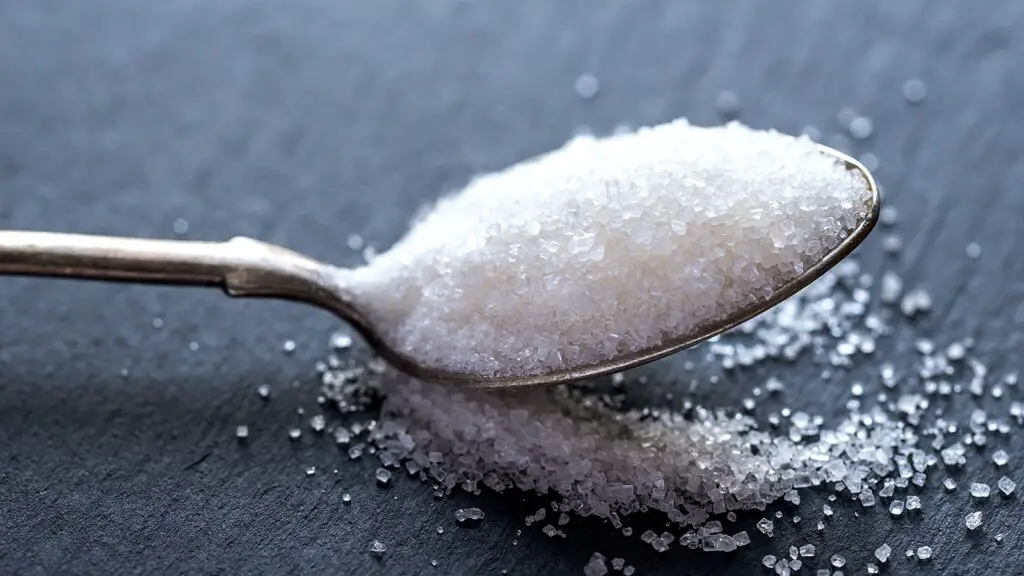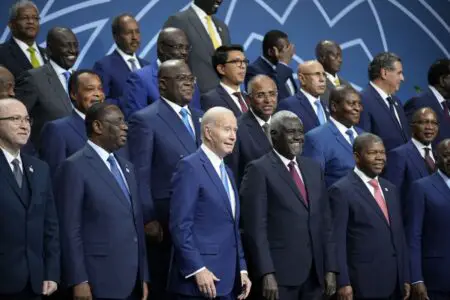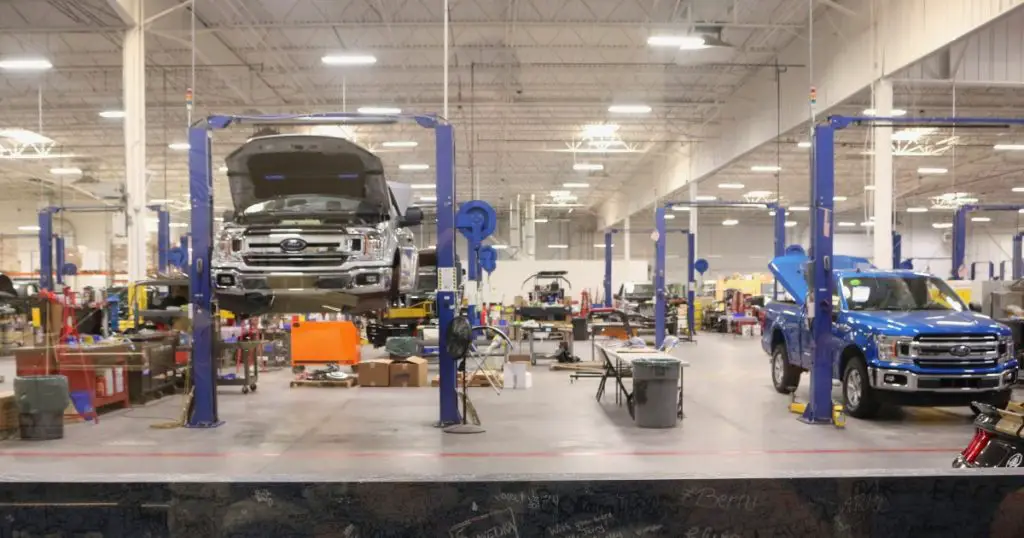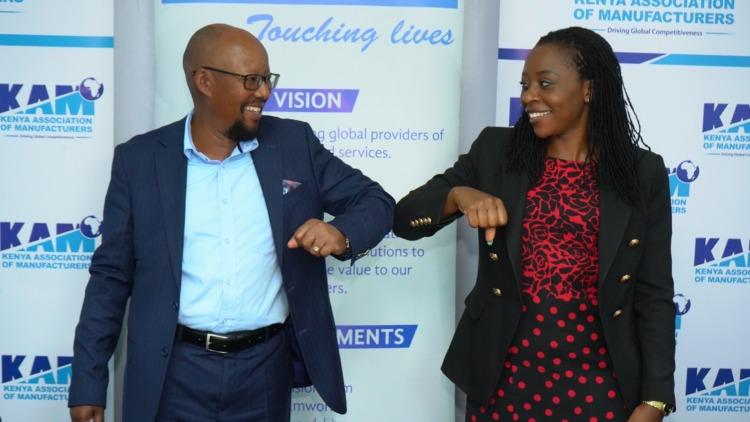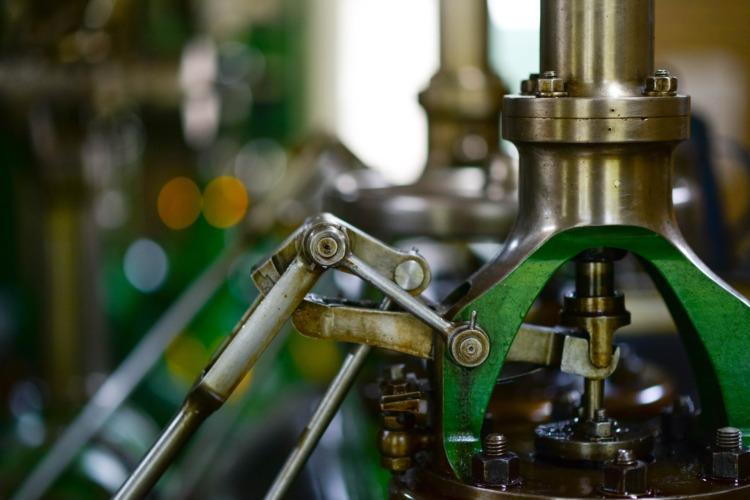- Africa’s new dawn: the rising role of digital and AI in agriculture
- Can Dangote Refinery Transform Africa Energy Ambition
- Gallup Survey: 80 per cent of Kenyan Workers Are Disengaged and Seek New Opportunities
- Madagascar Man Freed from 5KG Tumor After 15-Year Struggle
- How women in Africa are perceived and treated
- Sugar consumption in Kenya to Increase to 1.23 Million Tonnes
- Can Somalia and Turkey Oil deal Bring Change in Somaliland
- Remittances to Kenya dropped to $371.6 million in June, marking a six month low
Browsing: Kenya Association of Manufacturers
- Finance Bill 2024 Proposals seek to introduce a 25 per cent excise duty on vegetable oils, which KAM says will drive upwards the cost of cooking oil.
- The proposed finance law aims to expand Kenya’s tax base by bringing more economic activities into the tax net.
- This, according to KAM, will lower the cost of living for Kenyans and create prosperity for the country.
The Kenya Association of Manufacturers (KAM) has raised concerns over the state’s proposal to increase the Import Declaration Fund (IDF) from 2.5 per cent to 3 per cent.
In a raft of proposals to the government, the manufacturers highlighted some of the expected impacts of the proposed law on Businesses in the East African nation.
KAM argues that the imposition of IDF will significantly elevate the costs of raw materials, thereby stifling the manufacturing sector’s ability to add value.
In a statement on Monday, May 20, …
- According to the Agriculture and Food Authority (AFA) there are 15 sugar factories in the country.
- Despite these investments, self-sufficiency in sugar has remained elusive over the years as consumption continues to outstrip supply.
- The deficit is met through imports mainly from COMESA states.
President William Ruto of Kenya has declared war on sugar cartels, who have been blamed for causing a collapse of state-owned factories, as private players flourish in the country.
This, even as imports continue to dominate the market, which has over years struggled with a shortage of the sweetener, owing to a low production capacity by local millers.
Kenya’s sugar industry cartels
After taking power in September 2022, President Ruto promised to revive the sugar industry. Among others, he offered to investing in new and modern milling machines besides providing affordable fertilizer to farmers.
And just last week, he promised to breathe life into Mumias Sugar, …
- AGOA has been a cornerstone of the U.S trade policy in Sub-Saharan Africa since the year 2000.
- The non-reciprocal trade preference programme that provides duty-free access to the U.S market.
- A range of manufactured goods and processed mineral products account for the bulk of exports.
African countries are pulling together to lobby the U.S Congress to approve the renewal of the Africa Growth and Opportunity Act (AGOA) this year.
Kenya and South Africa are leading the push to have a 10-year extension on the pact that allows a select number of African countries to export finished products to the US.
AGOA has been a cornerstone of the U.S trade policy in Sub-Saharan Africa since the year 2000.
The non-reciprocal trade preference programme that provides duty-free access to the U.S market, for about 40 eligible African countries, is set to expire in 2025.
Initially, it was intended to last 15 years …
- Kenya Association of Manufacturers (KAM) has entered a new deal to drive the sustainable development and growth of the automotive industry in Kenya
- The partners said that the goal would be achieved by scaling up production, increasing trade, and driving the global competitiveness of Kenya’s automotive industry
- Kenya’s automotive industry is set to increase its market share locally and regionally
Kenya Association of Manufacturers (KAM) has partnered with the African Association of Automotive Manufacturers (AAAM) to drive the sustainable development and growth of the automotive industry in Kenya.
The partners said that the goal would be achieved by scaling up production, increasing trade, and driving the global competitiveness of Kenya’s automotive industry.
AAAM CEO Dave Coffey predicted that with a progressive policy, Kenya’s automotive industry is set to increase its market share locally and regionally.
“The increased focus on building value chains and enhancing trade shall spur the demand for …
The lack of harmonised standards, failure to implement the Single African Air Transport Market (Saatm) and the export of raw commodities remain the continent’s biggest obstacles to trade.
In addition, African countries have some of the most rigid visa and work permit requirements, they have multiple testing agencies and erect unnecessary roadblocks for random checks along transport corridors which increases the cost of cross-border trade.
This, eventually, deals a blow to the Micro, Small and Medium Enterprises (MSMEs) which also happen to be the backbone of the continent’s economy.…
In Kenya, businesses are condemning the high cost of doing business, amidst the economic challenges brought about by the COVID-19 pandemic.
Through the Kenya Association of Manufacturers, business owners have expressed concern on the current focus on politics without practical solutions to bring local businesses back on the recovery track
The Association’s Chairman, Mucai Kunyiha, raised concerns on the severity of the additional taxes imposed on businesses in addition to inflation adjustment on specific rates of duty.
“It is becoming more expensive to operate in Kenya due to the introduction of taxes, fees, levies and charges,” he said.
Kunyiha pointed out the Crop (Nuts and Oil Crops) Regulations 2020 which introduced new fees and levies as a measure to control thirteen (13) scheduled crops.
“Through the 2021 Finance Act, the government has introduced excise tax on raw materials and 16 percent VAT on the supply of some products, effectively increasing …
Kenyan and Tanzanian manufacturers have called for the expedited resolution of non-tariff barriers (NTBs) and the review of the East African Community Common External Tariff (EAC CET).
This was said during the trade investment forum held on Thursday, hosted by Kenya Association of Manufacturers (KAM) and Confederation of Tanzania Industries (CTI) in Dar Es Salaam, Tanzania, to discuss trade promotion between the two states.
Kenya’s exports to Tanzania declined from US$342.9 million in 2016 to US$294.9 million in 2020 while its exports to the rest of the world grew from US$5.7 billion in 2016 to 6.02 billion in 2020.
On the other hand, Tanzania’s exports to Kenya grew from US$126.2 million in 2016 to US$258.2 million in 2020, while her exports to the world grew from US$4.4 billion in 2016 to US$5.2 billion in 2020.
Speaking during the forum, the High Commissioner of Kenya to Tanzania, Dan Kazungu noted that …
Observed every 7 July, Tanzania’s Saba Saba annual trade fair has this year climaxed with a three day meeting by traders and government officials from Kenya and Tanzania.
The event lasts about a week before the apex on the 7th of every July. This year, the end of the fair has marked the start of a meeting on trade promotion and market access between the two countries. The meeting comes in the wake of Presidential commitments made by Kenya’s President Uhuru Kenyatta and Tanzania’s President Samia Suluhu Hassan and the just concluded bilateral negotiations on trade between the two States.
Hosted in partnership between Tanzania’s Confederation of Tanzania Industries (CTI) and Kenya’s Kenya Association of Manufacturers (KAM), the meeting brings together manufacturers from various sectors of the economy. They include Food and Beverage, Edible Oils, Chemicals, Automotive, Leather to mention but a few.
Manufacturers from Kenya and Tanzania are set to hold three day talks starting today to deliberate on trade promotion and market access between the two countries.
According to Kenya Association of Manufacturers who will be co-hosting the event, Food and Beverage, Edible Oils, Chemicals, Automotive, Leather and Footwear sectors are some of the manufacturing sectors that shall participate in the trade mission.
The event is also being hosted by Confederation of Tanzania Industries (CTI).
Leading the Kenyan delegation, KAM Chairman Mucai Kunyiha noted that addressing pertinent issues between Kenya and Tanzania will not only enhance trade between the two nations but also drive the competitiveness of products and services from both countries
He added that the two countries have the capability and capacity to add value to the wide array of resources that both countries have for export markets.
He however said that achieving this is hindered every time the …
The MPA outlines proposals to support robust economic and manufacturing sector recovery, consistent with the government’s post-Covid-19 recovery strategy. The Priority Agenda highlights the importance of a competitive local manufacturing sector.
With the globalization of world economies, it is impossible to insulate production or demand from global competition and changes. As such, manufacturers in Kenya must battle it out with formidable competitors such as China, India, Egypt, and South Africa. Improving regulatory efficiency, promoting access to quality, affordable and reliable energy, reducing transport and logistics costs, and enhancing cash flow for manufacturers will drive our competitiveness.…






